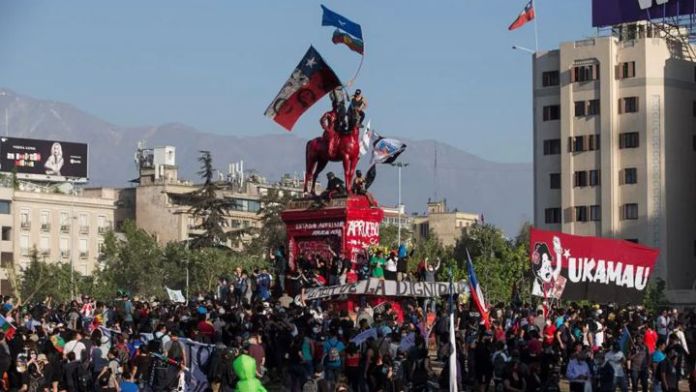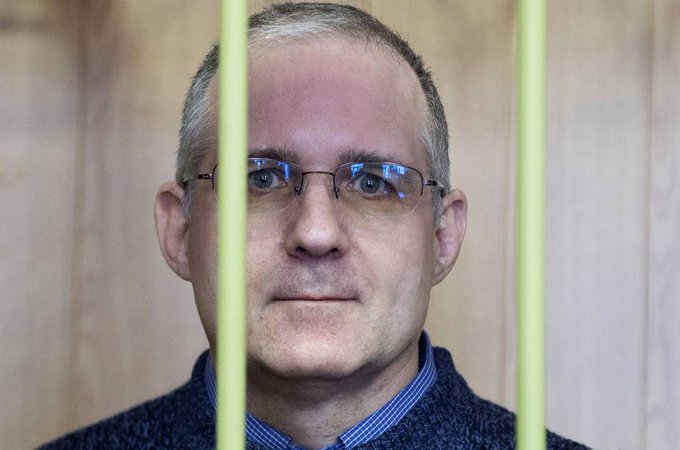This October 18, Chile commemorated the second anniversary of the social outbreak that exposed the magnitude of the desire for changes, and that detonated in various ways; with happy marches, cacerolazos, chants, slogans, shouts, but also with violence, silence, abuse, repression and lack of will of those who must generate the transformations in the country.
Chile woke up to a new way of facing years of history of social iniquities, and the struggle of millions of people promoted a well-directed constituent process that managed to stamp the fall of the Political Constitution of Augusto Pinochet.
Although in 2019, the events that occurred positively marked a before and after in the lives of Chileans, a new wound was also opened, thousands of families experienced the death of loved ones, disappearances, torture, eye trauma, arrests, and imprisonment. Today that pain remains open, without reparation and without justice.
The commemoration took place in a peaceful context, with a massive march (which the government refuses to recognize), songs, slogans, and artistic manifestations, demanding truth, solutions, and probity.
However, the streets again ended with violent events: clashes of protesters with police, arson attacks, destruction of public and private spaces, looting, attacks on police barracks, detainees. The worst, two dead people.
Faced with the chaos, the Undersecretary of the Interior, Juan Francisco Galli, pointed out that beyond the material perpetrators of the crimes, those who are truly and ultimately responsible are those who support the demonstrations and defend the prisoners of the social outbreak of 2019.
“They installed a feeling of impunity in Chile and presented a pardon project, like Yasna Provost, and those who are going to visit a defendant in pretrial detention in jail, like the candidate of the Communist Party and the Broad Front, Gabriel Boric.”

Looking for political dividends (within days of the presidential elections), the national authority held the presidential candidates Gabriel Boric and Yasna Provost directly responsible for the violent incidents that occurred.
The government tried to detach itself from a task that falls to the Interior Ministry and not to the candidates: to protect public security. The authorities continue to act from a single point of view, to search and find guilty parties, but they have not really been in charge of finding an explanation for the acts of violence.
The historical constant in the country is that social effervescence is not treated as a symptom of something, but as a problem that must be crushed. When violence is used, violence is almost always received.
Why, after the change of the Magna Carta, do there continue to be disorders in the streets of Chile? What drives violence? Why do people expose themselves to being repressed and beaten by the police?
Urgent problems
The Convention will define what means are legitimate for the ends desired by people in terms of equity and social justice, it is a vision that is being built for the next fifty years.
However, there is total abandonment and indifference to the immediate needs and urgent problems of the people; indebtedness, rise in prices, salaries, CAE, forecast, unemployment. For two years, the government of Sebastián Piñera has not taken over any point on the social agenda.
It corresponds to the apathy of the president, currently accused and constitutionally accused of a tax offense, bribery, and bribery for the sale of the Dominga mining company.
Freedom, truth, justice, reparation, and guarantees of non-repetition.
New images have become known that have revealed how the police acted during the social outbreak, violating human rights. So far no strategic command has been prosecuted.
An open wound that manifests itself in the streets as a claim, a cry in the citizen’s ardor. There is no truth, reparation, or guarantees of non-repetition for the victims. Of all of them, these are just a few dramatic cases:
Fabiola Campillai, on November 26, 2019, when she was going to work, the police officer Patricio Maturana shot her directly in the face with a tear gas canister, leaving her blind, without taste and smell, with fractures in the skull and sequels for life.
Mario Acuña, on October 23, 2019, was brutally tortured by police officers in a demonstration, leaving him prostrate forever.
Oscar Pérez, a young man run over by two water jets, one of them driven by police officer Mauricio Carrillo. The young man has been operated on eight times.
Camila Valdés, on December 13, 2019, back from work, the police shot her six pellets in her leg, leaving her dependent on a cane.
Miguel Rojas, on October 22, 2019, police tortured him inside a supermarket, leaving him with 90% neurological damage.
Alex Núñez, on October 20, 2019, died at the hands of the police.
Nicole Kramm, audiovisual producer, and photojournalist, on December 31, 2019, going to work on a documentary, was hit by a police pellet, losing sight of her left eye.
Amnesty International has shown that the means and techniques established within the Carabineros enabled, promoted, and tolerated the excessive use of force.
In addition, it recognizes that justice and structural reform of the institution are fundamental steps so that human rights violations are not repeated.
It is essential to consider that criminal acts must be repressed, but, on the other hand, the background, the feelings of the people, their needs, and their rights that are obviously not being addressed must be sought in the demonstrations.



















































































